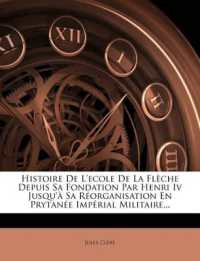- ホーム
- > 洋書
- > 英文書
- > History / World
Full Description
After seventy-five years of independence, the history of Pakistan remains centered on the state, its ideology and the two-nation theory. Towards Peoples' Histories in Pakistan seeks to shift that focus away from histories of an imagined nation, to the history of its peoples.
Based on the premise that the historiographical tradition in Pakistan has ignored the existence of people who actually make history, this book brings together historians, anthropologists, sociologists and political scientists to shed light on the diverse histories of the people themselves.
Assembling histories of events and peoples missing from grand narratives of national history, the essays in this collection incorporate a diversity of approaches to the past as it opens the possibilities of multiple histories, the archives through which they are registered, and the various temporalities in which they persist.
The volume highlights and recuperates the entangled nature of history and memory within Pakistan's social and cultural life. By critically examining both leftist and nationalist thought, Towards People's Histories in Pakistan explores competing visions of what is meant by 'the people', and charts new ground in developing the promise of people's histories both within Pakistan and beyond.
Contents
List of Figures
List of Contributors
Introduction, Asad Ali (Independent Scholar, UK) & Kamran Asdar Ali (University of Texas, USA)
Part I: Recalling "Progressive" Histories
Chapter 1: The Left and its Legacies: The Long 1960s in Pakistan, Kamran Asdar Ali (University of Texas, USA)
Chapter 2: 'South Asia's Partitions and the Limiting of Progressive Possibilities in Pakistan.', Anushay Malik (Simon Fraser University, Canada) & Hassan Javid (University of Fraser Valley, Canada)
Chapter 3: On Progressive Papers in Pakistan, Mahvish Ahmad (London School of Economics, UK), Hashim bin Rashid (SOAS University of London, UK) & Ahmad Salim (South Asian Resource and Research Centre, Pakistan)
Part II: : Nationalism's Many Violences
Chapter 4: 1971: Pakistan's Past and Knowing What Not to Narrate, Nayanika Mookherjee (University of Durham, UK)
Chapter 5: Left Behind by the Nation: 'Urdu Speakers' in Bangladesh, Dina Mahnaz Siddiqi (New York University, USA)
Chapter 6: Invisible Borderlines, Naila Mahmood (Independent Scholar, Pakistan)
Part III: Alternate Registers, Other Histories
Chapter7: Un-archiving Baloch History, Adeem Suhail (Franklin and Marshall College, USA)
Chapter 8: Queer in the Way of History, Omar Kasmani (Free University of Berlin, Germany)
Chapter 9: Gatherings of Commemoration: Performing Other Histories in Pakistan's Sufi Shrines, Amen Jaffer (Lahore University of Management Sciences, Pakistan)
Chapter 10: Beyond "Forgotten Histories": Teesri Dhun (The Third Tune) as Collaborative Performance Research, Claire Pamment (The College of William and Mary, USA)
Part IV: Politics and 'the People'
Chapter 11: Tulba, Mazdoor aur Kissan (Students, Labourers and Peasants): The Revolution made Easy, Aasim Sajjad Akhtar (Quaid-i-Azam University, Pakistan)
Chapter 12: The people in their difference, Humeira Iqtidar (King's College London, UK)
Chapter 13: Countering the production of cultural hegemony: Reflections on women's activism under Zia, Farida Shaheed (Shirkat Gah-Women's Resource Centre, Pakistan)
Chapter 14: Political Emotion and Bodily Politics: Zulfikar Ali Bhutto and 'The People', Asad Ali (Independent Scholar, UK)
Index







